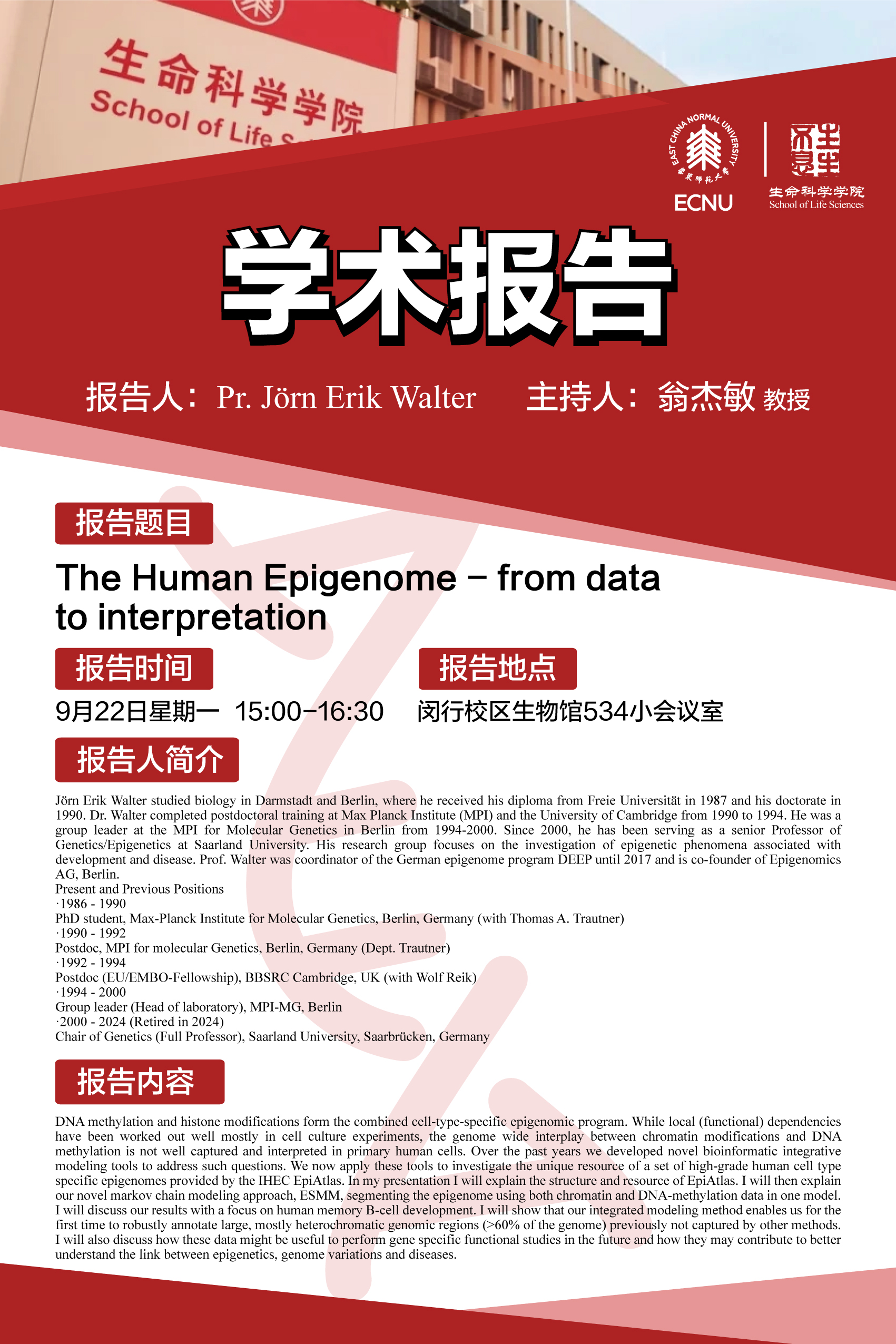报告题目:The Human Epigenome - from data to interpretation
报 告 人:Pr. Jörn Erik Walter
主 持 人: 翁杰敏 教 授
报告时间: 2025年9月22日(星期一) 15:00-16:30
报告地点: 闵行校区 生物馆534小会议室
报告人简介
Jörn Erik Walter studied biology in Darmstadt and Berlin, where he received his diploma from Freie Universität in 1987 and his doctorate in 1990. Dr. Walter completed postdoctoral training at Max Planck Institute (MPI) and the University of Cambridge from 1990 to 1994. He was a group leader at the MPI for Molecular Genetics in Berlin from 1994-2000. Since 2000, he has been serving as a senior Professor of Genetics/Epigenetics at Saarland University. His research group focuses on the investigation of epigenetic phenomena associated with development and disease. Prof. Walter was coordinator of the German epigenome program DEEP until 2017 and is co-founder of Epigenomics AG, Berlin.
报告简介:
DNA methylation and histone modifications form the combined cell-type-specific epigenomic program. While local (functional) dependencies have been worked out well mostly in cell culture experiments, the genome wide interplay between chromatin modifications and DNA methylation is not well captured and interpreted in primary human cells. Over the past years we developed novel bioinformatic integrative modeling tools to address such questions. We now apply these tools to investigate the unique resource of a set of high-grade human cell type specific epigenomes provided by the IHEC EpiAtlas. In my presentation I will explain the structure and resource of EpiAtlas. I will then explain our novel markov chain modeling approach, ESMM, segmenting the epigenome using both chromatin and DNA-methylation data in one model. I will discuss our results with a focus on human memory B-cell development. I will show that our integrated modeling method enables us for the first time to robustly annotate large, mostly heterochromatic genomic regions (>60% of the genome) previously not captured by other methods. I will also discuss how these data might be useful to perform gene specific functional studies in the future and how they may contribute to better understand the link between epigenetics, genome variations and diseases.
